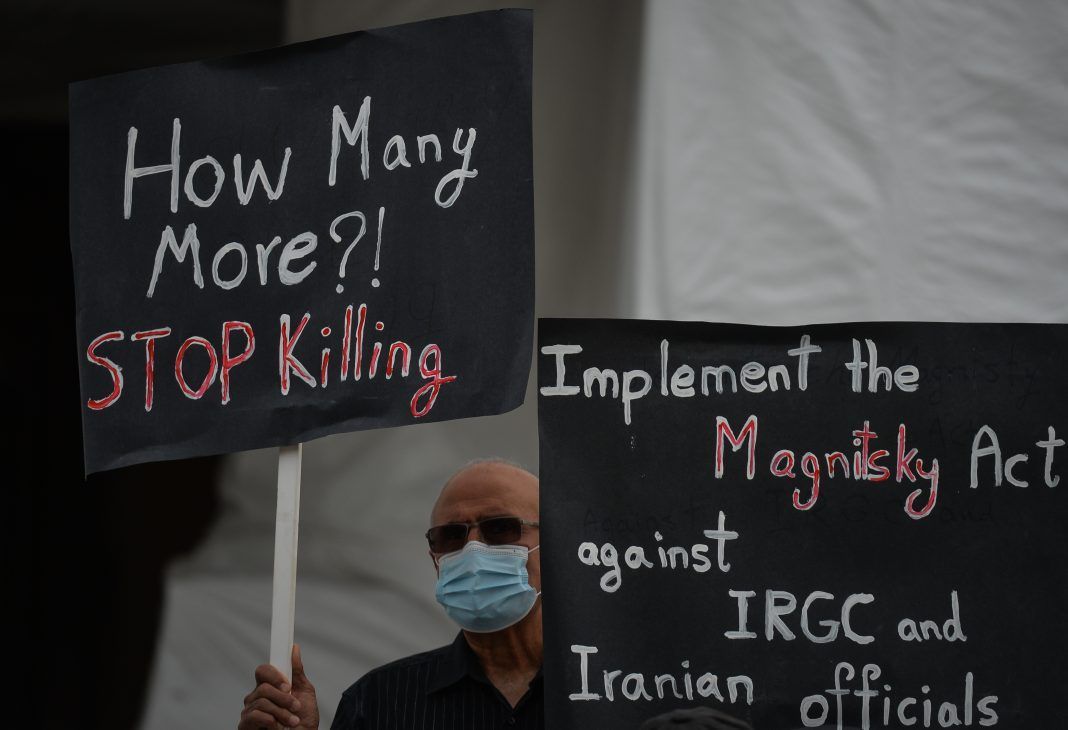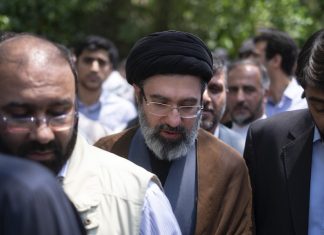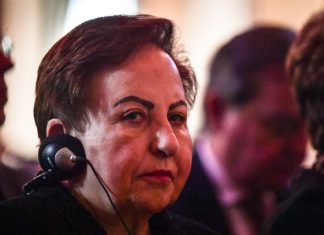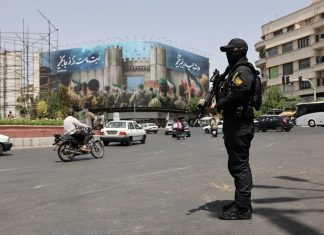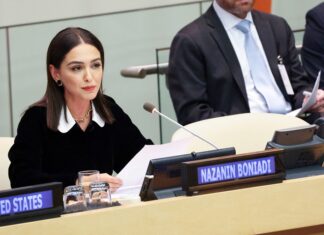The Aban Tribunal — a five-day hearing in London launched by human rights groups to investigate the alleged involvement of top officials in Iran in crimes committed during the November 2019 protests — has heard from three former members of Iran’s security forces.
Iran Accused of “Crimes Against Humanity” at Aban Tribunal in London
The three men were members of Iran’s security police during the brutal crackdown on protesters in 2019 which spanned more than 21 cities.
During the hearings, the officials asked for their faces to be completely covered and their voices altered to protect their identities. The men then gave evidence about the strategies and methods used by security forces to attack the demonstrators, according to a Nov. 22 press release by the Campaign to Free Political Prisoners in Iran (CFPPI). Members of the CFPPI attended all of the hearings which concluded on Nov. 15.
Several witnesses at the hearings alleged that they had been tortured physically, sexually and psychologically by Iranian security officials following their arrest and detention for taking part in the protests.
In a Nov.19 online event hosted by Maryland-based think tank the National Union for Democracy in Iran (NUFDI), Len Khodorkovsky, a former advisor to the US State Department’s special representative on Iran said: “One day [the Iranian people] will see justice. It may not be today, it may not be tomorrow, but it’s coming. Every dictatorship is destined for the ash heap of history.”
Morgan Ortagus, a former spokesperson for the US State Department who spoke at the event said: “I am inspired by the people of Iran, by their bravery, their tenacity and their unwillingness to accept the status quo.”
Iran’s regime has been repeatedly criticized in recent years by world leaders and human rights bodies over its treatment and detention of protesters.
Responding to ongoing human rights abuses in Iran, the United Nations General Assembly approved a draft resolution during its 76th session on Nov. 17 expressing “serious concern at the alarmingly frequent use of the death penalty.” The assembly also called on Iran’s government to remove child offenders from death row. More than 70 per cent of executions of child offenders worldwide are carried out in Iran.
During the session, the committee’s US representative denounced the Iranian government’s use of force during the 2019 protests and said: “Two years ago, the Iranian regime killed hundreds of protesters and tortured and imprisoned thousands more.”
EXCLUSIVE – U.N. Expert Backs Probe into Iran’s 1988 Killings, Raisi’s Role
The US representative then expressed “concern with regards to reports of death sentences imposed following unfair trials, and reports of false confessions obtained via the use of torture.”
The draft resolution — approved by 79 votes in favor to 30 against, with 71 abstentions — included calls for Iran’s government to: end restrictions on freedom of expression and assembly; improve prison conditions; and ensure accountability for human rights violations.
The representative for Iran said the draft resolution was biased and non-constructive, and called the document an “insincere political move.”
Meanwhile on Nov. 18, Human Rights Watch condemned the detention of human rights campaigner Narges Mohammadi. The rights advocate was arrested on Nov.16 for peacefully protesting the death of Ebrahim Ketabdar who was killed by Iranian security forces during the 2019 protests. Mohammadi was sentenced to 30 months in prison and 80 lashes by an Iranian court.
Human Rights Watch Regional Director for the Middle East and North Africa Heba Morayef called on the Iranian government to release Mohammadi immediately and to protect her from torture and ill treatment, in the watchdog’s press release.
“To arrest a human rights defender for calling for truth and justice on the two-year anniversary of the November 2019 protests, where hundreds of men, women and children were killed by Iranian security forces, is a callous act — and another reminder of the crisis of systemic impunity in Iran for crimes under international law,” Morayef added.
Mohammadi’s husband Taghi Rahmani said the rights defender was being held in solitary confinement and prevented from contacting her family, in a statement released on Nov. 16. The statement included calls for her release by several human rights advocates as part of an appeal to free all of Iran’s political prisoners.
The appeal has been endorsed by more than 3,000 people around the world including Dr. Noam Chomsky, Gloria Steinem, Ariel Dorfman and philosopher Dr. Cornel West.
SPECIAL REPORT- Iran’s Leader Ordered Crackdown on Unrest: “Do Whatever It Takes to End It”

